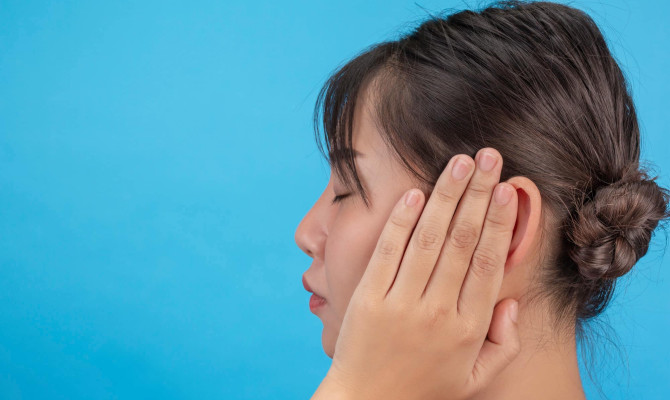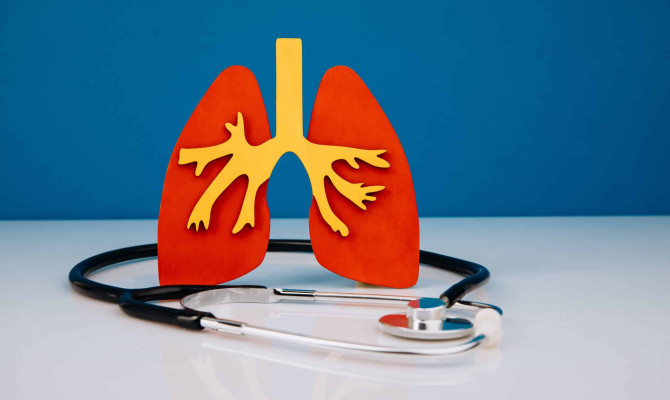Gastroenteritis : A Contagious illness of stomach

- Gastroenteritis
- 17 Aug 2023
Overview
What is Gastroenteritis?
Gastroenteritis is an irritation or inflammation of the gastrointestinal tract lining, including that of stomach, small intestine, and large intestine. People also call it the stomach flu or stomach bug. The most frequent causes of gastroenteritis, a temporary disease that normally resolves by itself, are viral or bacterial infections. Thousands of individuals around the world are affected by this highly contagious illness. This article will examine the causes, risk factors, symptoms, diagnosis, course of treatment, side effects, and prevention methods linked to gastroenteritis.

Symptoms
Symptoms of Gastroenteritis
Those who have gastroenteritis may exhibit the following signs and symptoms:
- Diarrhea
- Headache
- Nausea
- Fever
- Dehydration
- Abdominal pain1Symptoms| Researched based study from Medlineplus.gov
- Abdominal cramps
- Body aches
- Tiredness
- Pus in stool – but not in all cases
- Bloody stool – though not in all case
Causes
Causes of Gastroenteritis
Causes of gastroenteritis can be of the following:
- Viruses – Norovirus, adenovirus, or rotavirus.
- Bacteria – Escherichia coli (E. coli), Salmonella, Campylobacter, and Shigella.
- Parasites – Entamoeba histolytica, Cryptosporidium, and Giardia lamblia.
- Bacterial toxins – produced by some strains of bacteria. Example – staphylococcal bacteria.
- Chemicals – heavy metals like lead poisoning.2Causes| Researched based study from Betterhealth.vic.gov.au
- Medicines – like antibiotics, antacids containing magnesium, anthelmintic, cancer therapy drugs, digoxin, laxatives, heavy metals, etc.
The most frequent causes, such as bacterial, viral, or parasitic diseases, are often spread by contaminated food or water, poor hygiene habits, or close contact with infected people.
Types
Types of Gastroenteritis
Based on the cause of gastroenteritis , they can be:
- Bacterial gastroenteritis
- Viral type
- Parasitic type
- Foodborne
- Travelers Diarrhea
Bacterial gastroenteritis
- Bacterial infections cause more severe cases of infectious diarrhea than other infectious reasons.3Types| Researched based study from Nlm.nih.gov
Viral gastroenteritis
- Highly contagious types that are caused by viral infections.
- Norovirus is the most typical cause of this form of gastroenteritis.4Types| Researched based study from Nlm.nih.gov
Parasitic gastroenteritis
- Certain parasites can infect the gastrointestinal system, leading to gastroenteritis.
- Children are the most frequently affected by drinking or eating contaminated food.5Types| Researched based study from Nlm.nih.gov
Foodborne
- Some people also call this type of gastroenteritis as food poisoning, it is a condition caused by ingesting contaminated food or drinks.
- 70 % of acute gastroenteritis (AGE) is caused by Foodborne diseases (FBDs)6Types| Researched based study from Nlm.nih.gov
- Common offenders include bacteria like salmonella, staphylococcus aureus, and Clostridium perfringens.
Travelers diarrhea
- Travelers to developing or underdeveloped countries with poor sanitation facilities are likelier to experience this.
- Enterotoxigenic Escherichia coli (ETEC) is the most typical bacteria that causes this infection, while other parasites and bacteria may also cause it.7Types| Researched based study from Msdmanuals.com
Based on the duration of symptoms:
- Acute
- Persistent
- Chronic
- Recurrent
Acute gastroenteritis
- May last up to 14 days or fewer.8Types| Researched based study from Nlm.nih.gov
Persistent type
- The duration of the symptoms can range from 14 to 30 days.
Chronic gastroenteritis
- May last more than 30 days in duration.
Recurrent type
- When symptoms disappear and reappear after seven days.
Risk factors
Factors increase the risks of getting Gastroenteritis
Anyone can get stomach flu. However, the following factors increase the risk:
- Age – Due to weakened immune systems, young kids, infants, and older adults are more vulnerable to severe gastroenteritis.
- Weakened Immune System – for instance in people who receive chemotherapy or immunosuppressive drugs or have HIV infection, are more likely to have gastroenteritis.
- Living in Crowded Conditions – as they spread quickly in places where people live in close quarters, such as schools, daycare, psychiatric wards, dormitories, nursing homes, cruise ships, prisons, and military camps.
- Traveling to underdeveloped or developing nations.
- Exposure to Contaminated Food or Water – Consuming food or water contaminated with harmful bacteria or viruses significantly increases the risk of gastroenteritis.
- Lack of Hand Hygiene – Poor hand hygiene after using the bathroom or before handling food can contribute to the spread of gastroenteritis.
- Other health conditions – Persistent or chronic gastroenteritis can be brought on by conditions such as Crohn’s disease, ulcerative colitis, microscopic colitis, collagenous colitis, irritable bowel syndrome, celiac disease, eosinophilic gastroenteritis, lactose intolerance, intestinal obstruction, colon cancer, ischemic bowel, and malabsorption.8Risk factors| Researched based study from Nlm.nih.gov
Diagnosis
Diagnosis of Gastroenteritis
Diagnosing gastroenteritis typically involves the following:
- Medical history
- Physical examination
- Laboratory tests
Medical history
- The doctor could ask about the signs and symptoms, how long they have lasted, and whether the person has ever consumed contaminated food or drink.
- The doctor may also bring up the patient’s recent travel, encounters with sick persons, current or previous medical issues, and the use of any prescription or over-the-counter medications.
Physical examination
The doctor may
- Monitor the pulse and blood pressure for dehydration signs.
- Check the patient for fever.
- Listen to the abdomen using a stethoscope.
- Tap the abdomen to feel for any pain or tenderness.
- To check for blood in the stool, the doctor will occasionally do a digital rectal examination on the patient by inserting a lubricated, gloved finger into the anus.
Laboratory tests
- Stool test – may indicate the presence of an infection, inflammation, or digestive issues. 9Diagnosis| Researched based study from Niddk.nih.gov
Treatment
Treatment of Gastroenteritis
Gastroenteritis can be treated by managing symptoms and preventing dehydration as follows:
- Rehydration
- Medications
- Rest and support
- Probiotics
- Home remedies
Rehydration
- Restoring fluids and electrolytes depleted by vomiting and diarrhea is the main objective.
- Oral rehydration solutions containing a balanced mixture of salts and sugars are often recommended.
- Severe cases may require intravenous fluids in a hospital setting.
Medications
- Antiemetic medications can help control nausea and vomiting.
- Antidiarrheal medications are generally not recommended for bacterial gastroenteritis, as they can prolong the infection by trapping the bacteria in the intestines.
- Antibiotics may be required in some cases of bacterial gastroenteritis to treat the infection.
Rest and Nutritional Support
- Resting and avoiding solid foods briefly can give the gastrointestinal tract time to recover.
- Gradually reintroducing easily digestible foods such as crackers, rice, and bananas can help restore proper nutrition.
Probiotics
- Probiotics, which are beneficial bacteria, can help restore the balance of gut flora and aid in the recovery of the gastrointestinal tract.
- They may be recommended in some cases to decrease the duration and severity of symptoms.
Home remedies
People can do the following to feel better and prevent dehydration during their recovery:
- Give the digestive system a break by depriving it of solid food for a few hours or days.
- Keep hydrated by often drinking tiny sips of water, sucking on ice chips, or, if necessary, using oral rehydration treatments.
- Steer clear of milk, alcohol, coffee, and other caffeinated beverages.
- When someone with gastroenteritis begins to feel better, they might gradually resume eating bland, simple foods such as clear broths, soups, soda crackers, bananas, toast, rice, and applesauce.10Treatment| Researched based study from Mayoclinic.org
- Immediately cease eating if nausea returns.
- Get lots of rest because this illness and dehydration can leave the person exhausted and weak.
Prevention
Prevention of Gastroenteritis
Preventing gastroenteritis involves adopting proper hygiene practices and taking necessary precautions like:
- The transmission of germs can be stopped by adequately washing hands with water and soap for at least twenty seconds, especially after using the restroom, changing diapers, or before handling food.
- Use safe methods for handling and preparing food, such as washing vegetables and fruits, cooking food to the optimum temperature, and quickly refrigerating perishables.
- To reduce the likelihood of transmission, commonly touched objects like doorknobs, bathroom fixtures, and counters should be cleaned and disinfected on a regular basis.
- If you have gastroenteritis symptoms, staying home from work, school, or social gatherings until at least 48 hours after symptoms have subsided to prevent spreading the infection to others is crucial.
- Immunizations, such as the rotavirus vaccine for infants, can help prevent certain types of viral gastroenteritis.11Prevention| Researched based study from Clevelandclinic.org
Complications
Complications associated with Gastroenteritis
Although most cases of gastroenteritis last a few days and resolve on their own within a few days, complications can arise, especially in vulnerable individuals, and may include:
- Dehydration – Prolonged diarrhea and vomiting can lead to dehydration, which, if left untreated, can be severe, especially in older adults, infants, and individuals with compromised immune systems.
- Electrolyte Imbalance – Loss of fluids can result in an electrolyte imbalance, which may disrupt normal bodily functions and require medical intervention.
- Malnutrition – Inadequate food intake during the illness can lead to temporary malnutrition, particularly in young children. Replenishing lost nutrients is essential for recovery.
- Kidney Problems – In rare cases, severe gastroenteritis can lead to kidney complications, such as hemolytic uremic syndrome (HUS). HUS is more commonly associated with certain strains of E. coli bacteria.12Complications| Researched based study from Nlm.nih.gov
- Death of an individual – due to severe dehydration in infants, older adults and in immunocompromised people.4Complications| Researched based study from Nlm.nih.gov
Prognosis
Prognosis of Gastroenteritis
Gastroenteritis is a common gastrointestinal infection. Most cases of gastroenteritis in adults resolve after a few days without complications. Proper hygiene practices and safe food handling are crucial in preventing its spread. Timely diagnosis, symptomatic treatment, and rehydration are essential for managing the condition. The prognosis in most cases is excellent. However, the patient must maintain oral hydration even if they do not seek medical care.
Any feedback on this article?
 This Articles content was accurate
This Articles content was accurate Very Informative Article
Very Informative Article I have a question or a comment
I have a question or a comment
 This article contains inaccurate content
This article contains inaccurate content This article was not helpful
This article was not helpful I have a question or a comment
I have a question or a comment
We appreciate your helpful feedback!
Checkout our social pages
References
-
Medline Plus
Gastroenteritis | Symptoms
-
The Better Health Channel
Gastroenteritis | Causes
-
National Library of Medicine
Bacterial Gastroenteritis | Types
-
National Library of Medicine
Viral Gastroenteritis | Types
-
National Library of Medicine
Parasitic gastroenteritis | Types
-
National Library of Medicine
Burden and Impact of Acute Gastroenteritis and Foodborne Pathogens in Trinidad and Tobago | Types
-
MSD Manuals
Traveler’s Diarrhea | Types
-
National Library of Medicine
Acute Gastroenteritis | Types
-
National Institute of Diabetes and Digestive and Kidney Diseases
Diagnosis of Viral Gastroenteritis (“Stomach Flu”) | Diagnosis
-
Mayo Clinic
Gastroenteritis: First aid | Treatment
-
Cleveland Clinic
Stomach Flu (Gastroenteritis) | Prevention
-
National Library of Medicine
Gastroenteritis in an adult female revealing hemolytic uremic syndrome: Case report | Complications





































